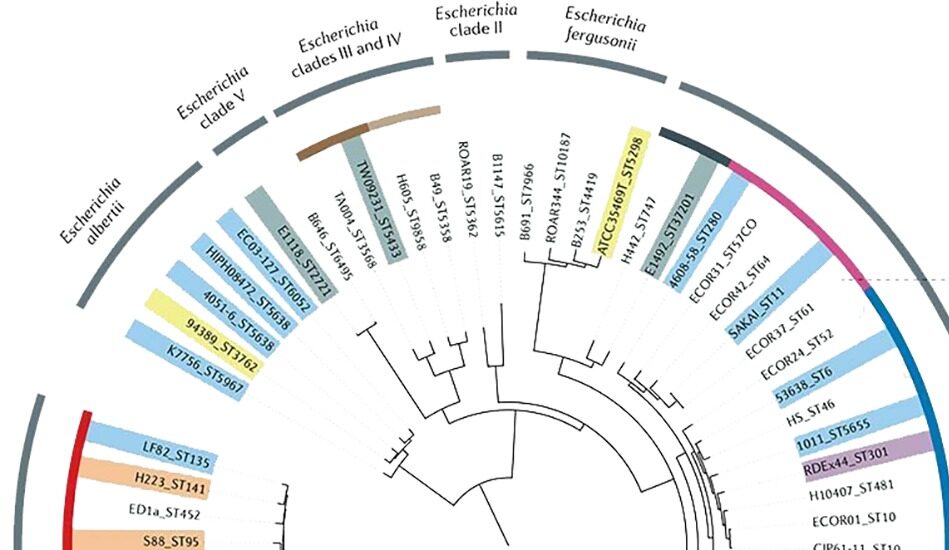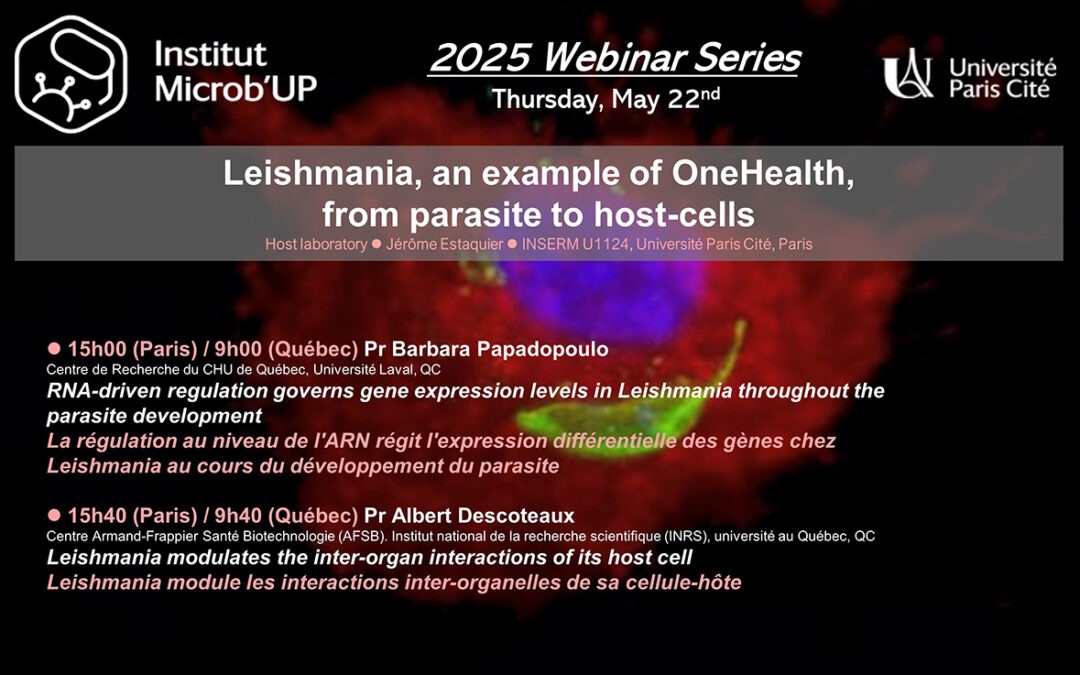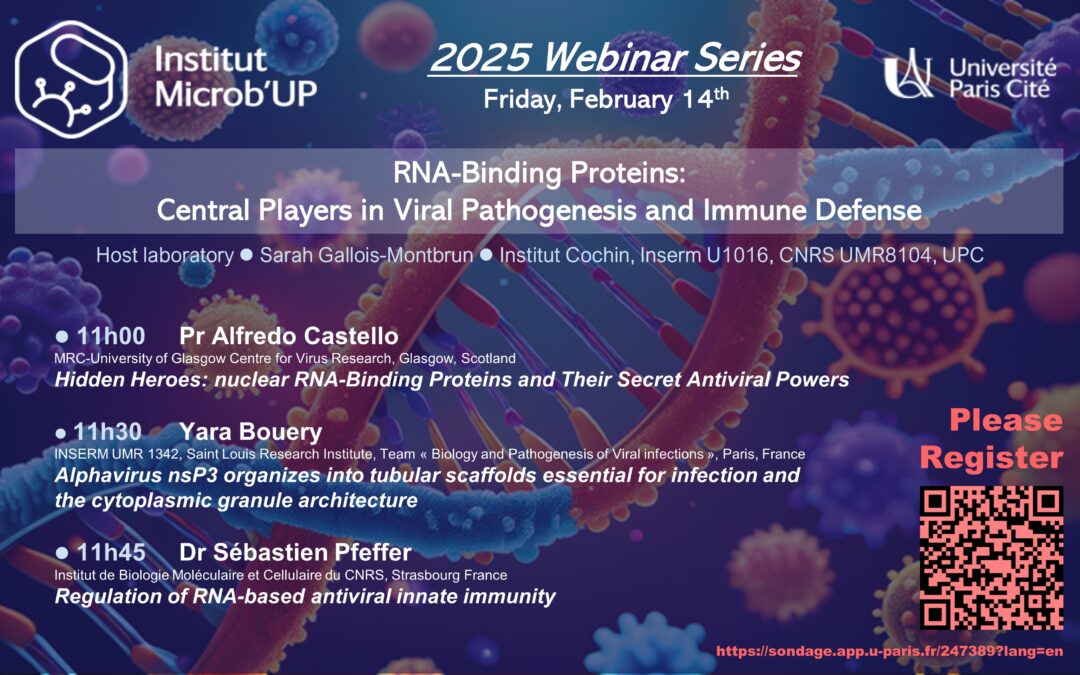Molecular epidemiology
The characterisation of microbial population diversity with sequencing is an active field of research in Microb’UP

Phylogenetic tree of Escherichia coli from Denamur et al Nature Review Microbiology 2021
With the democratization of sequencing technologies, genomics has become a key element of the characterization of microbes and infectious diseases. Molecular epidemiology, with the study of a rising number of samples is offering snapshots of the diversity found within species. The benefit of full genome sequences is multiple. First, it allows fine scale analysis of the species phylogenies that are sometime not resolved for some microbes. Second, it allows to track the evolutionary dynamics occurring within species. At large scale, these dynamics are well illustrated with the propagation of a succession of SarsCov2 variant or with the spread of antibiotic resistance among bacterial species. But, full genome sequencing can also offer a high enough resolution to tackle viral or bacterial dynamics within a hospital or through a chain of contamination. Third, access to the full genome gives access to the functional elements of these microbes and can help identify genes or alleles associated with some clone successes, from antibiotic resistance or virulence genes, to patho-adaptative mutations.
With a vast number of teams with members directly involved in hospital virology, bacteriology and parasitology laboratory, Microb’UP network has access to a vast number of strains that are sequenced and studied in depth with the molecular epidemiology approach. On organisms ranging from HIV to Escherichia coli or sordariales. Modelers are also present in the Microb’UP to integrate these data and make inferences about the evolutionary processes at play.
News

Scientific day Microb’Ex, May 2025
On Wednesday, May 28, 2025, the Microb'Ex community gathered to attend the auditions of the candidates for the 2025 Microb'Ex Call for Projects, as well as to take part in the round table discussion on the educational part of the Microb'Ex project. Program of the...

MICROB’UP Webinar Series; Leishmania, an example of OneHealth, from parasite to host-cells
MICROB'UP Webinar Series; Leishmania, an example of OneHealth, from parasite to host-cells This webinar has been recorded, find the link HERE

MICROB’UP Webinar Series; Persistent Infection, Persistent Challenges: New Insights into Bacterial Prostatitis
MICROB'UP Webinar Series; Persistent Infection, Persistent Challenges: New Insights into Bacterial Prostatitis This webinar has been recorded, find the link HERE ; code: qx13qKm#&s

MICROB’UP Webinar Series; RNA-Binding Proteins: Central Players in Viral Pathogenesis and Immune Defense
MICROB'UP Webinar Series; RNA-Binding Proteins: Central Players in Viral Pathogenesis and Immune Defense The webinar was recorded and is available at : LINK
